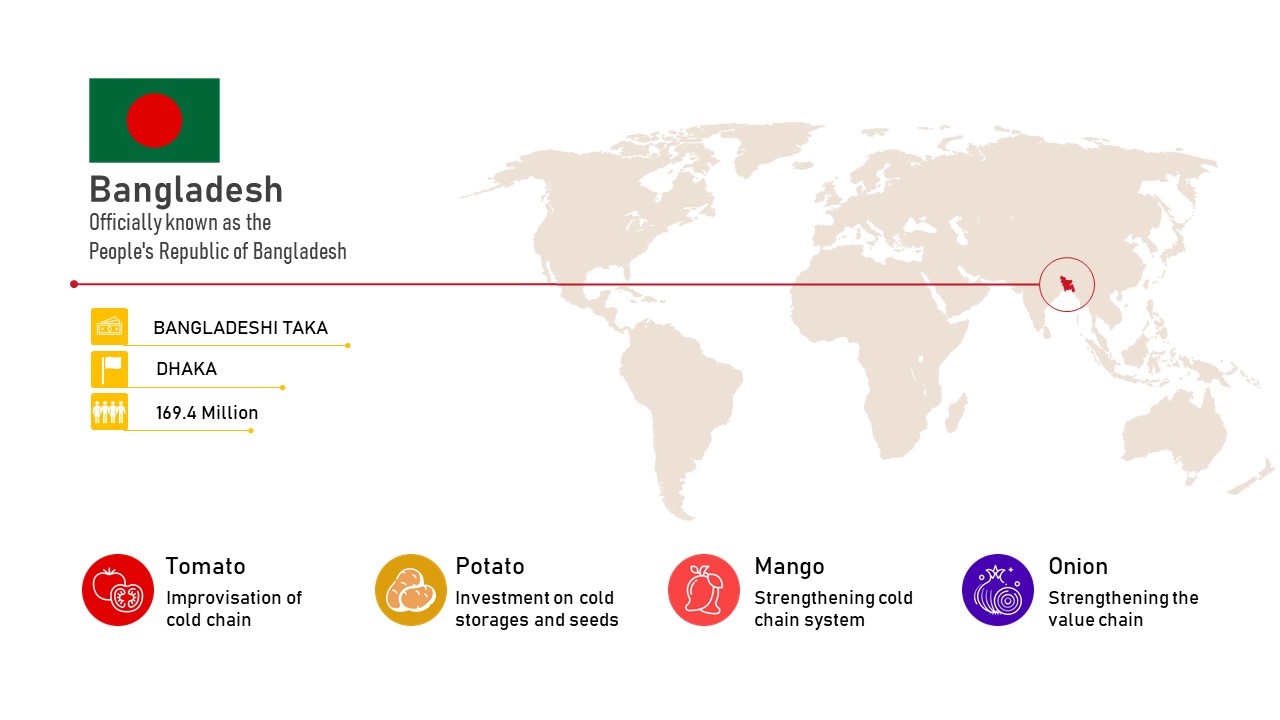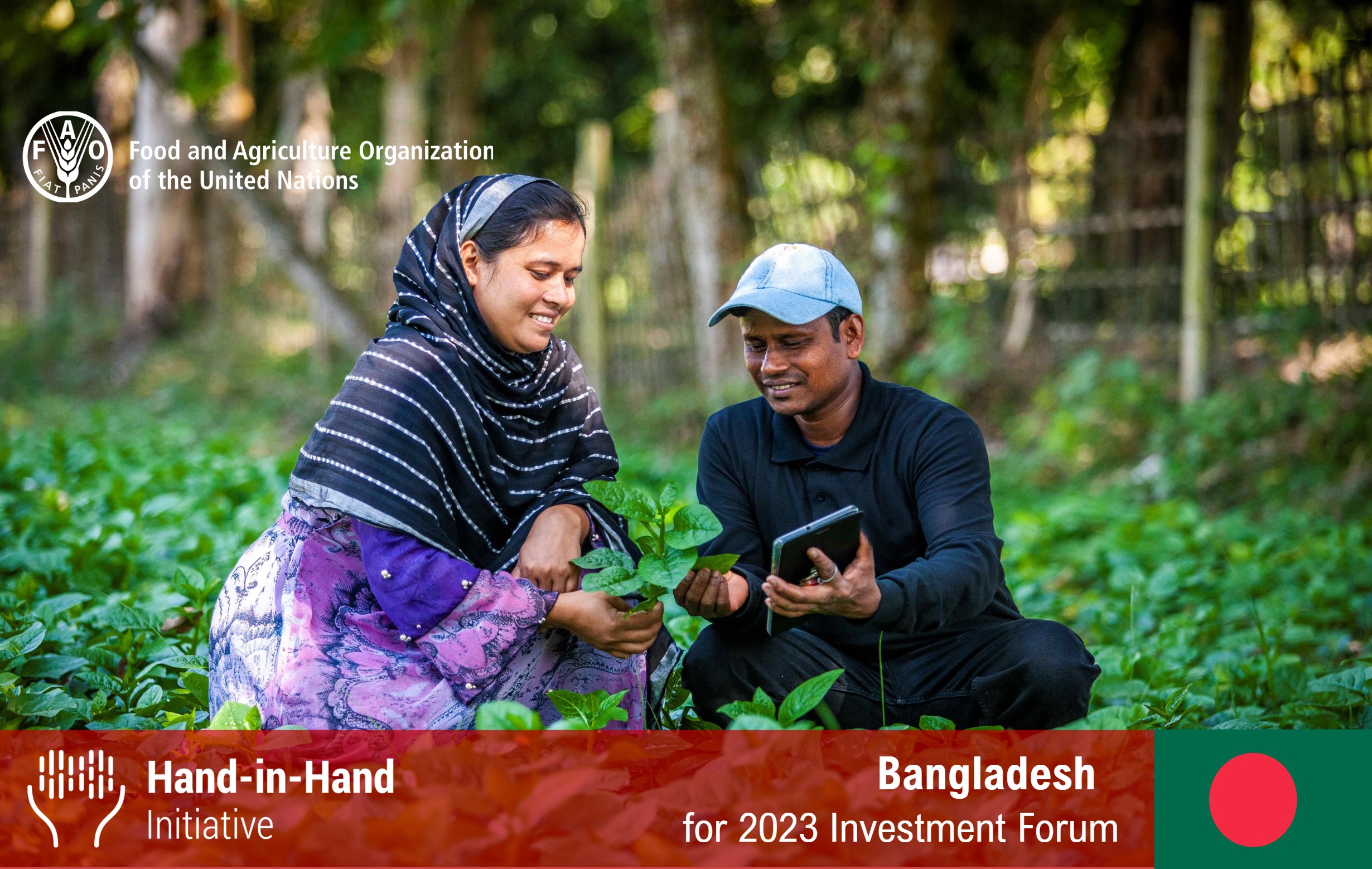INVESTMENT PRESENTATION
THE PROPOSAL
The Government of Bangladesh has set in place a long-term plan focusing on four strategic areas:
- agro-processing, marketing, and commercialization
- climate-resilient, climate-smart agriculture
- cold storage and post-harvest management, and supply chain management
- irrigation and water management.
The plan is to implement them across the strategic agro-ecological zones, with each zone focusing on an intervention.
In Bangladesh, the Hand-in-Hand Initiative supports investments addressing post-harvest losses. While crop production has increased, storage infrastructure to reduce food loss and boost exports has been lacking. Therefore, investments focus on cold storage and agro-processing facilities to reduce post-harvest losses by 45-55% in the below four value chains.
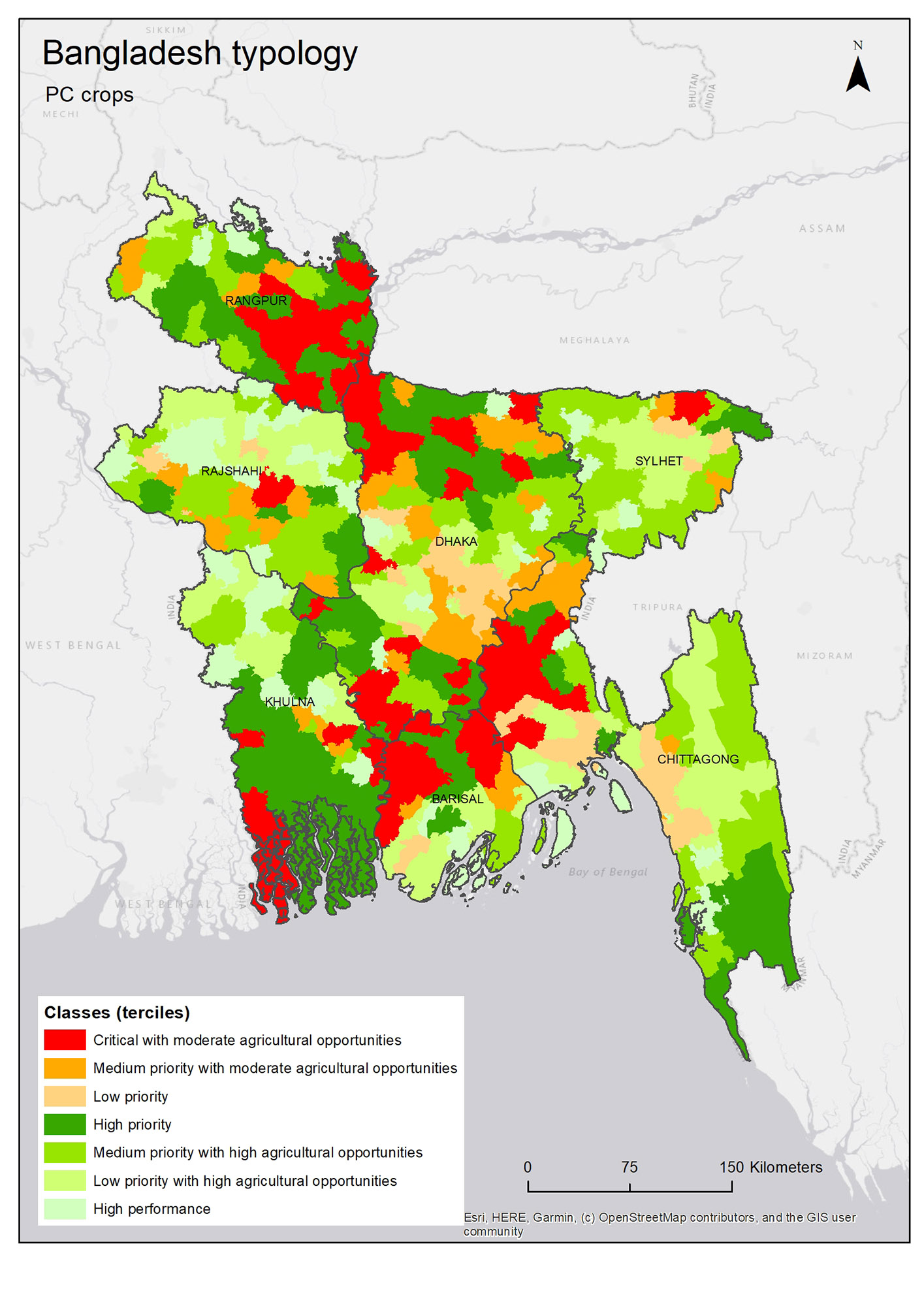
Poverty
Potential
Efficiency
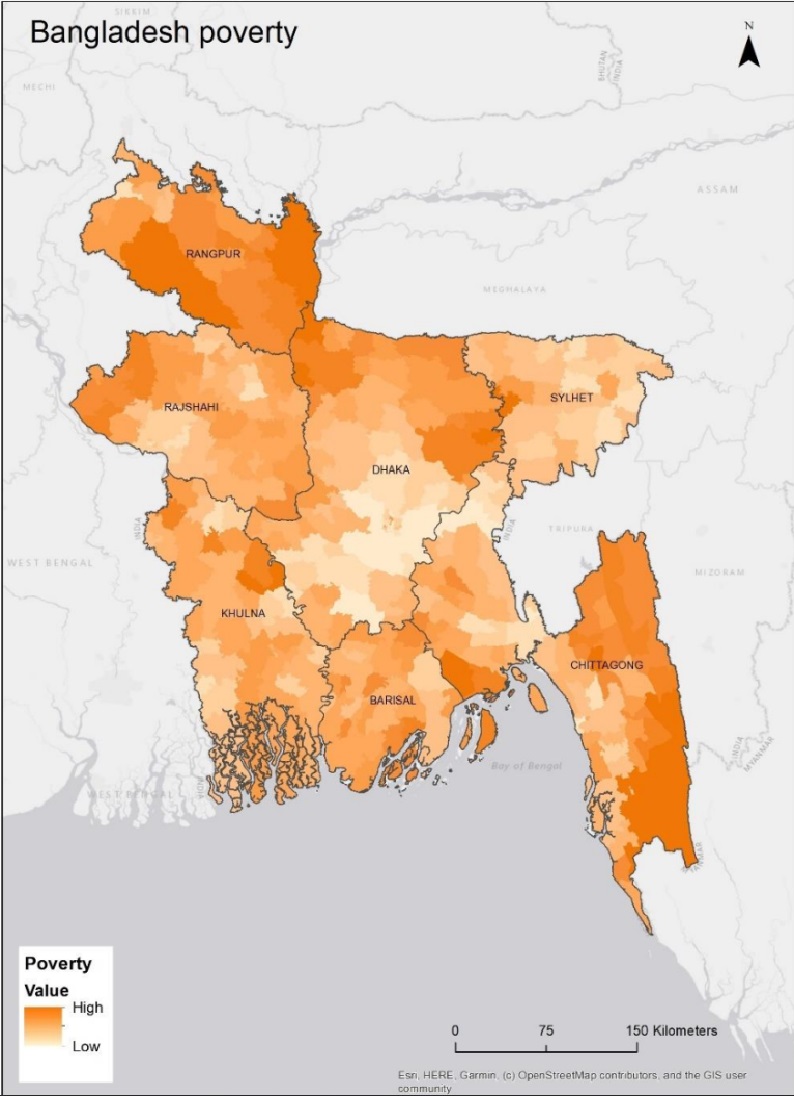
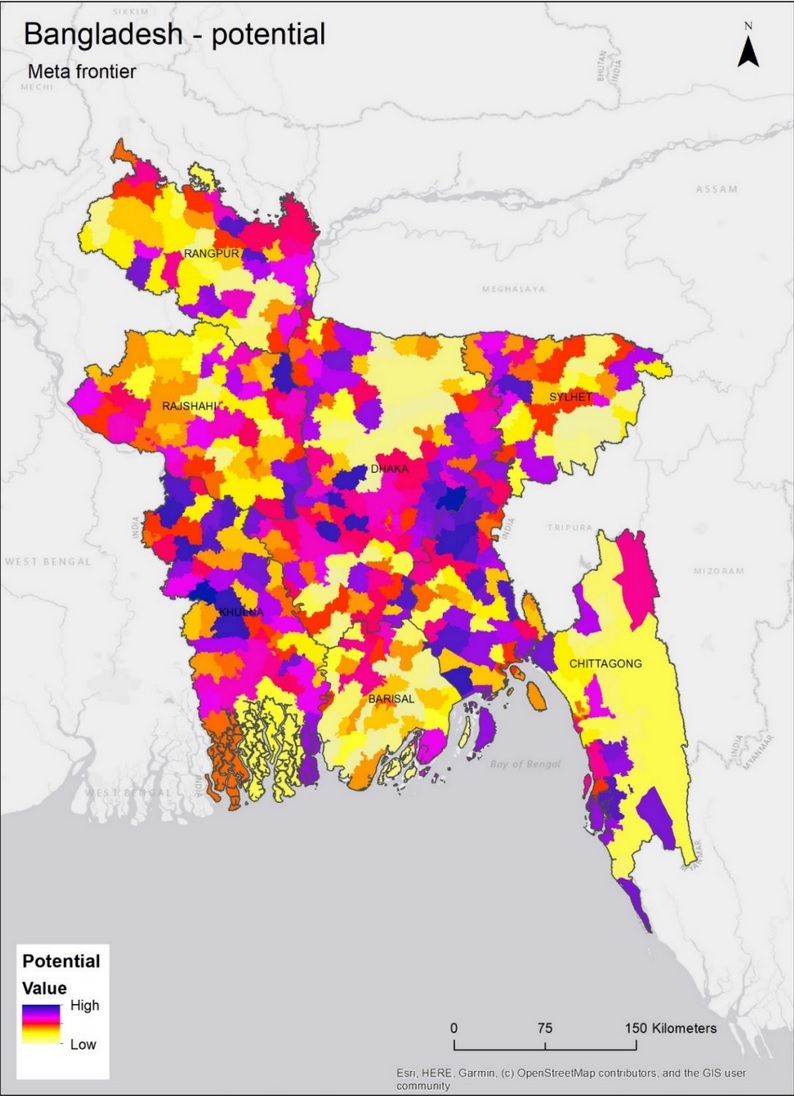
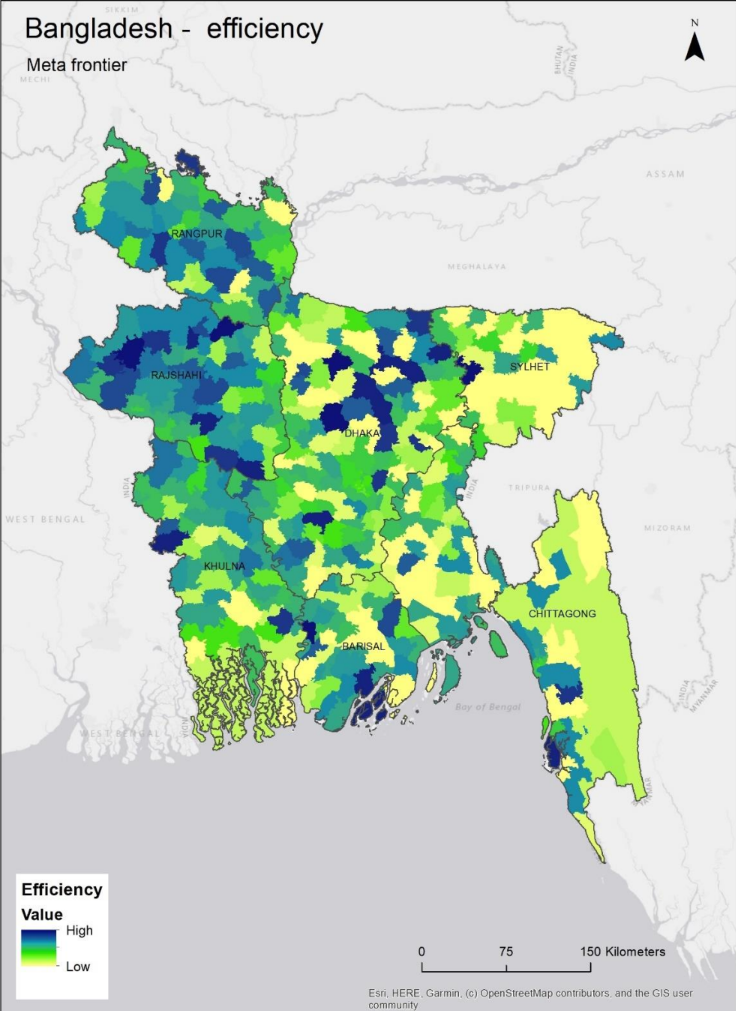
COMMODITIES AND INTERVENTIONS
Potato
Potato is the second most produced crop. Potato production has overtaken domestic annual demand. But the country still faces shortage, as more than 25% of potatoes are lost after harvest. So interventions are focused on improving cold storage infrastructure and investing in climate-resilient seed varieties.
A cold storage unit with capacity of 6,000 metric tons yearly is planned to be installed in Rajshahi, Bogura, or Munshiganj. A processing unit with capacity of 10,000 metric tons annually will be established in Munshiganj.
An investment of US$410 million is being sought. As many as 2.9 million farmers will benefit from this. The net present value is US$211 million. The internal rate of return is estimated to be 15-20%.
Mango
Mango is the most grown fruit in Bangladesh, but 30% of what is produced is following harvest. Due to ample supply that exceeds moderate demand, the price is low. Investments focus on increasing exports to the Gulf countries, while still meeting domestic demand all year around. This would be achieved by boosting cold storage capacity, providing better credit and financial services to farmers, and investing in climate-resilient seed varieties.
A cold storage unit will be built in Rajshahi, with capacity of 1,000 metric tons per year. A processing unit with 10,000 metric tons of annual capacity will be established in Rajshahi.
Around US$90 million of investment is required for this effort. It would benefit more than 2.6 million farmers. The net present value is estimated to be US$87 million, and the internal rate of return is estimated to be 15% for storage units and 20-60% for processing facilities.
Onion
Onion is the most imported crops in Bangladesh. More than 25% of domestically produced onions are lost after harvest. There is acute shortage during off-season onion production. The aim is to increase off-season onion production to address the shortage by increasing cold storage infrastructure and investing in climate-resilient seed varieties.
A cold storage unit with capacity of 2,000 metric tons annually is planned to be built in Rajshahi or Faridpur.
An investment of US$75 million is required to do this. This would benefit than 1.08 million farmers. The net present value is estimated to be US$26 million, and the internal rate of return 15%.
Tomato
With around 40% of tomato being lost during post-harvest, the country has to rely on imports to meet demand. The aim is to improve cold storage infrastructure to meet domestic demand and potentially sell them overseas. Efforts are also made to boost the production of tomato paste and invest in climate-resilient seed varieties.
A cold storage unit with capacity of 1,000 metric tons annually will be built in Rajshahi, Cumila, or Bogura. A processing unit to produce tomato paste will also be built, with capacity to produce 10,000 metric tons of paste every year.
The Government seeks US$15 million in investment for this effort, which would benefit more than 164,000 farmers. The net present value is estimated to be US$5 million, and the internal rate of return 15%.
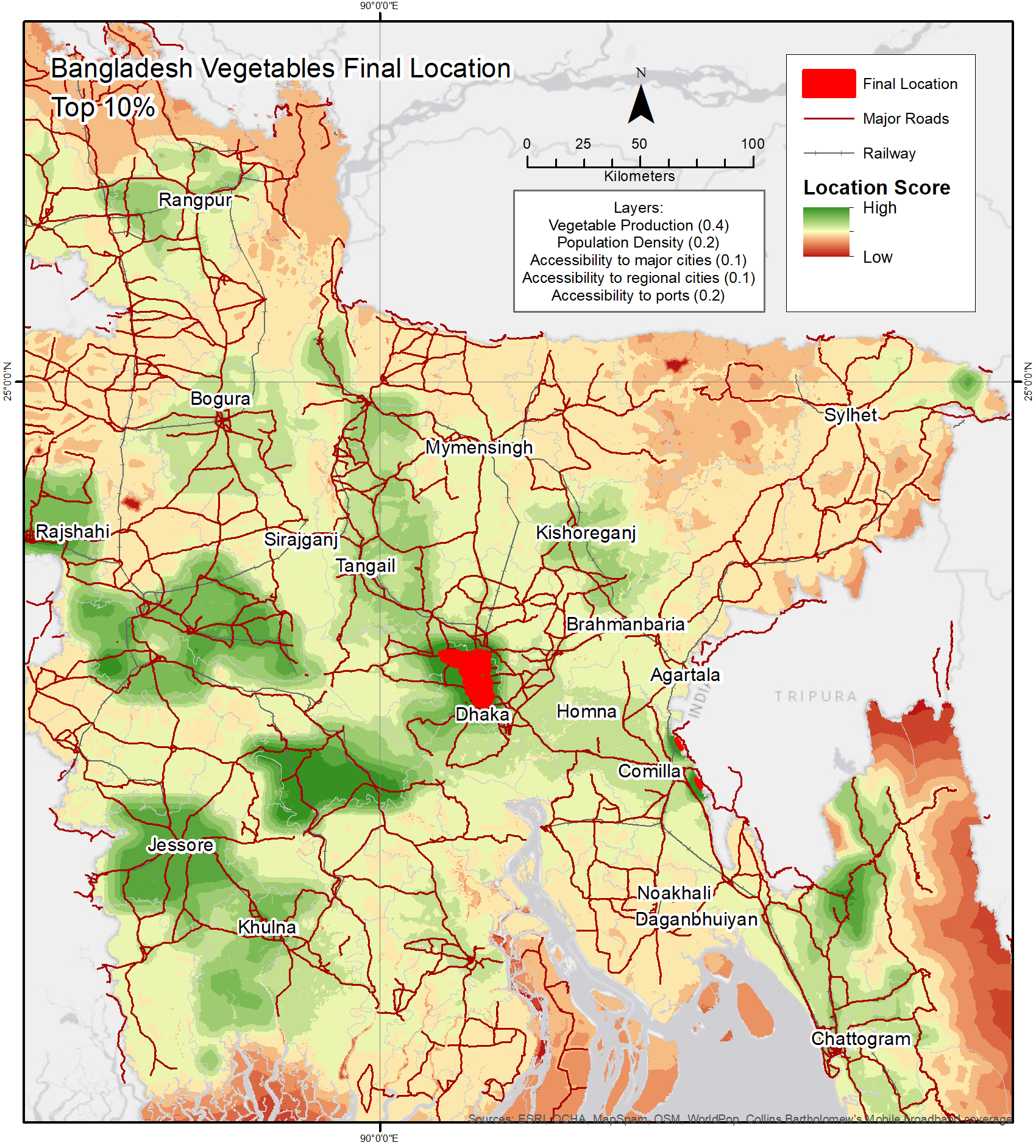
Bangladesh Agricultural Investment Forum 2023
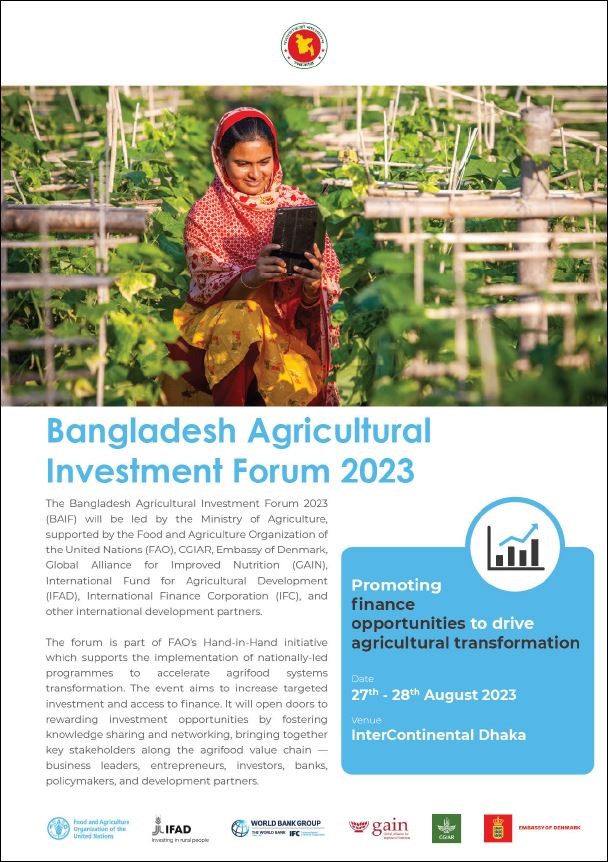 | 27-28 August 2023 The Bangladesh Agricultural Investment Forum 2023 (BAIF) will be led by the country's Ministry of Agriculture, supported by FAO, CGIAR, Embassy of Denmark, Global Alliance for Improved Nutrition (GAIN), International Fund for Agricultural Development (IFAD), International Finance Corporation (IFC), and others. The event aims to increase targeted investment and access to finance. It will open doors to rewarding investment opportunities by fostering knowledge sharing and networking, bringing together key stakeholders along the agrifood value chains. >> Learn more |
NEWS CLIPPING
Newspapers:
- The Daily Observer
- Dhaka Tribune
- The Business Standard
- Bangladesh Pratidin
- Bangladesh Shangbad Shangstha
- Bangladesh Post
- Agrilife24
- Jago News
- Channel i
- Sun BD 24
- Daily Inqilab
- Dhaka Post
Television:
RESOURCES
See the investment plan slide deck presentation from Bangladesh for IF 2023.
Country Info
